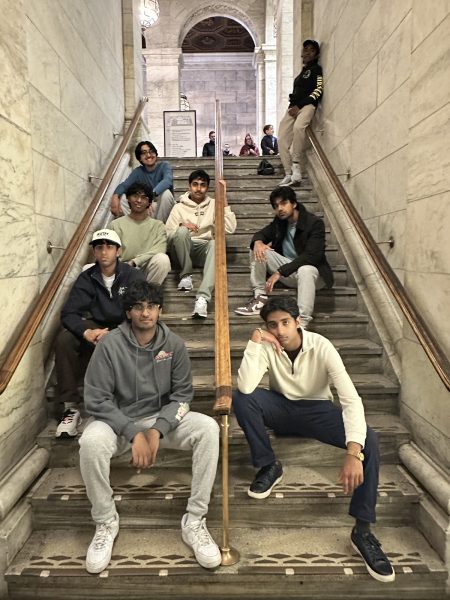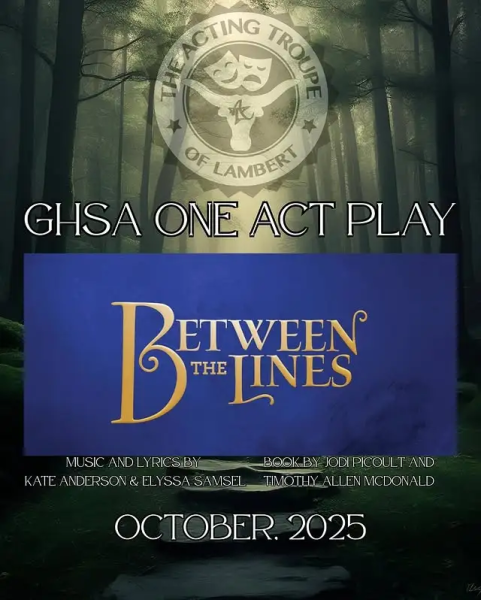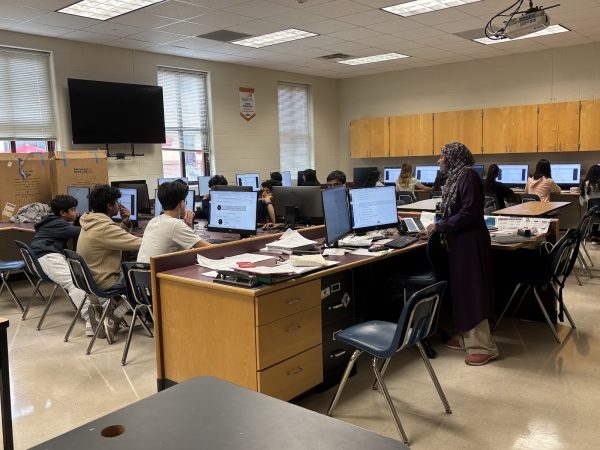What If: WWIII

If another world war were to break out, the ramifications could be devastating for the worldwide population (March 14, 2023). Ever since the start of the Russo-Ukrainian War, the possibilities of another global war are becoming probable, with current patterns that originally led to WWII appearing in the current war developments taking place in Russia. Photo Courtesy of Justin Hwang.
The year is 1914. The location is Austria-Hungary in the capital city of Vienna. BANG. You glance to the right. A little boy next to you falls to the ground. You stare at the eyes of a child who was once full of life just mere seconds ago. His blood spews and bubbles from his head. You close your eyes. You are no longer a civilian safe and sound in a cozy home. You open your eyes. You’re a soldier fighting for yourself and your family, caught amidst a global war you never saw coming – World War I.
A war thought at the time to be a short affair quickly turned into a global bloodbath, a four-year war that led to more than 37 million casualties. While people saw this conflict as ‘the war to end all wars,’ expecting a better future as a result of the Allied victory, an even greater conflict was on the horizon. Just 21 years after the commencement of WWI, WWII touched off on an even greater scale, causing unimaginable pain and suffering to people all over the world.
It is now February 24, 2022, and Russia has just invaded Ukraine. Russia’s move on Ukraine raises concerns over another total war. The impacts of World War II are still being felt today, but an even greater concern among many in today’s world is whether another global conflict could flare up yet again. A world war in today’s technologically-driven, modernized society could spell untold consequences and doom for the very future of humanity, leading many to consider the ramifications of such a war on their daily lives. It is imperative that with the current geopolitical situation today, we take a look at a potential future marred by a third world war.
As of late, the potential that China may come into the war on the side of the Russians has set off warning bells for many, as the current political climate would mean that a global conflict could be imminent.
“With the war in Ukraine, I think that a lot of major political superpowers are being pitted against each other in a way that they hadn’t been as directly in the past,” Lambert sophomore and political science enthusiast Tejas Kohli explained. “If China gets involved and gives support to the Russians, then it could be a very dangerous situation that could very well escalate into a third World War.”
Many see the war in Ukraine as the spark for what may become WWIII. Unlike the Austria-Hungary conflict – a matter of nationalism – that sparked WWI, Russia’s invasion of Ukraine was based on a greedy desire for unnecessary conquest, one which rooted from Putin’s bitter attitude and firm belief that Ukraine (for some reason) belonged to Russia. Many are shocked by Putin’s erratic behavior and completely unjustified action of invading Ukraine. What is primarily a Ukraine and Russia conflict may involve major powers such as China or the U.S. in the near future, due to the issues surrounding Taiwan. If this were to occur, the consequences of a modern day war could bring about unprecedented destruction due to the rapid technological advancements and the potential for biological warfare.
Putin’s reasoning for his current actions can be traced back to when he compared himself to Peter the Great. Putin believes that it is Russia’s destiny to take back land that used to belong to them when they were once the Soviet Union. Based on Putin’s constant attacks on Ukraine, his irrational actions are not coming to a stop anytime soon.
“We don’t want to escalate conflicts to another level,” Lambert junior Tanish Kamma said. “We want to try and resolve conflict as nonviolently as possible.”
Many feel that this kind of pacifism is a necessary step in preventing and mitigating potential conflict, something that would go a long way in averting a multi-layered global conflict such as WWIII. This was seen with many countries showing their involvement in the war through financial and humanitarian aid rather than directly sending their troops out into battle. By adopting such a policy, the scale and damage of the war was significantly reduced compared to one where allies on both sides participated militarily, and this has clearly helped prevent a major conflict from touching off. With fears of a WWIII growing primarily due to increased tensions and military pressure, pacifism may be an effective solution in directly deescalating the global political stage from its current position.
However, others feel that an overly passive approach could end up backfiring, and could represent a failure to learn from one of WWII’s biggest mistakes – the Western appeasement of Nazi Germany. Essentially, the Allied Powers such as Great Britain and France allowed Adolf Hitler and the Germans to militarize and conquer territory unchecked during the 1930s as they were reluctant to oppose the latter and risk another major global conflict. While it seemed like a logical move at the time, the events that would come to follow clearly illustrated that this was a feeble attempt to prevent conflict, and that a more headstrong approach may have been a better option to mitigating WWII. Keeping this historical mistake in mind may be crucial in potentially making a similar error on an even bigger scale this time around.
“A lot of reasons for those sorts of conflicts is because these tensions were ignored and allowed to fester,” Kohli explained. “If we want to prevent such a conflict, we have to be diplomatic but uncompromising in our stance against authoritarianism.”
While pacifism may be a better alternative to flat-out military aggression, the blatant mistakes made during Western appeasement suggest that simply allowing things to play out may not be an ideal move either. Taking both these perspectives into consideration, it is clear that the right balance of nonaggression and firmness in foreign policy is needed in order to ensure that a third World War never comes to fruition.
Russia’s invasion of Ukraine coupled with a potential failure to develop a balanced foreign policy means one can directly see what the potential results of WWIII could be. With technological developments becoming far more dangerous, the reality of a biological war is becoming imminently possible. Additionally, ever since the Cold War, developments in nuclear weapons have always been a popular topic of discussion. WWIII would be devastating due to the erratic behavior Russia is displaying, as well as the sheer power of the weaponry that would be used. Looking back to the 20th century, The Cold War ended with both the U.S. and USSR deciding not to use nuclear weapons; but in modern times, if a WWIII were to occur, the decision of using nuclear weapons would be another hard decision to make, and the outcome could be deadly if the wrong choice is made.
Society can only wait to see what becomes of the Russia-Ukraine conflict, but one thing remains clear. The potential for a WWIII may be just next door – a ticking time bomb waiting to go off. The next thing you know, another world war could be in your face, and BANG. You might be glancing left and right, staring into the blank eyes of numerous soldiers, all thanks to WWIII.
Your donation will help support The Lambert Post, Lambert High Schools student-run newspaper! Your contribution will allow us to purchase equipment and cover website hosting costs.












